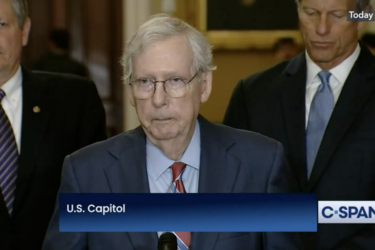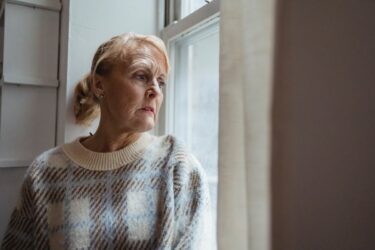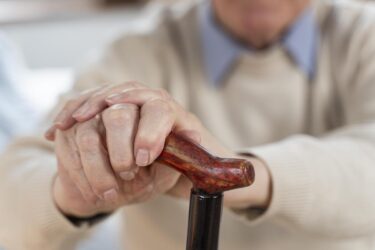Who says Congress can’t cooperate?
Two Republicans and two Democrats yesterday announced the formation of the bipartisan, bicameral Assisting Caregivers Today (ACT) Caucus to support family caregivers.
U.S. senators Kelly Ayotte (R-N.H.) and Michael Bennet (D-Colo.) and U.S. representatives Diane Black (R-Tenn.) and Michelle Lujan Grisham (D-N.M.) are leading the effort to bring greater attention to family caregiving and work on a bipartisan basis to find solutions to some of its major challenges.
“This is a great bipartisan, bicameral effort,” Bennet said. “It’s the stories and experiences that help us appreciate the magnitude of the effort put forth by family caregivers.” Speaking directly to the family caregivers in the audience, he noted that countless family caregivers are struggling to balance work and caring for families, performing complex medical tasks with little training or reimbursement. “These are the unsung heroes in our society. The ACT Caucus is a great step forward to increase awareness and provide a relentless voice to advocate smart, commonsense ways to support you.”
Lujan Grisham also announced plans to reintroduce the National Care Corps Act, a Peace Corps-like bill to form a volunteer brigade to help older adults and those with disabilities with unskilled caregiving, help to maintain a person’s independence “and to form those important, long-term relationships with those they care for,” she said. The bill was introduced in both houses in 2014 but never came to a vote.
“Caregiving is a full-time job, that is still primarily done by women,” Black said. “We need to find ways to give caregivers the relief they need and allow those they care for to stay in their own homes. By coming together to take care of those who are vulnerable and need assistance, we can address these challenges in ways best suited for them.”
Family caregivers Tobey Partch-Davies, Ph.D., of New Hampshire, Don Schierling of Colorado, Chris Courington of Tennessee and Marianita Gorman of New Mexico, provided emotionally laden descriptions of their challenges in caring for loved ones.
“There’s no one-stop shop for where to go, what to ask, how to access resources,” Courington said. He cares for his 75-year-old father, who suffers from Alzheimer’s and Parkinson’s in addition to other health issues. “You want to achieve balance in your own life while helping him maintain some semblance of independence and dignity.”
A new AARP telephone survey of 1,200 voters age 40 and older finds that a clear majority (77 percent) believe Congress should make it a priority to improve resources for family caregivers who help seniors and people with disabilities to live independently. More than two-thirds of these voters (68 percent) also said they would be more favorable to members of Congress who wanted to improve resources to family caregivers. Respondents were interviewed between Feb. 13 and Feb. 19; data was weighted by age and gender to reflect the United States registered voter population age 40 and older.
As people live longer and live with more chronic conditions, more of them require assistance with activities of daily living – such as eating, dressing, bathing, and transportation—as a result of physical limitations or cognitive impairments. Most Americans rely on family and friends to provide these services and assist in arranging and coordinating care. “The fact that this caucus is both bipartisan and bicameral is significant and encouraging. It sends a message that members of Congress recognize that the issues facing family caregivers and the desire to live independently and with dignity are not bound by politics or ideology,” said Jo Ann Jenkins, chief executive officer of AARP.
According to AARP, about 42 million family caregivers provide more than 40 billion hours of unpaid care to an adult with limitations in daily activities. The estimated economic value of these unpaid contributions was $450 billion in 2009. In addition, about 3.9 million family caregivers provide care to a child under age 18 because of a medical, behavioral or other condition or disability. Family caregivers provide more than 90 percent of the care that enables people with disabilities to avoid living in nursing homes or other institutional settings.
The survey found that nearly two-thirds (64 percent) of family caregivers report feeling emotionally stressed and more than half (59 percent) find it difficult to take a break, balance job and family (58 percent) and exercise regularly (53 percent) due to their caregiving responsibilities. However respondents overwhelmingly (94 percent) said that is important to provide care for their loved one so they can live independently in their own home. Even among those respondents who are not caregivers, 70 percent feel it would be important to help a loved one live independently in their own home.
Family caregivers want more information about caregiving resources (88 percent) and respite care (85 percent); need more help with chores and transportation to medical appointments (78 percent) and would find general transportation assistance (76 percent ) somewhat or very helpful according to the poll.
For more about family caregiving, check out these tip sheets, this recent post about the unmet care needs of older adults and this post on a deficit in long-term services and caregiving for those with Alzheimer’s disease. Video statements about the ACT Caucus by the elected officials are available here.









